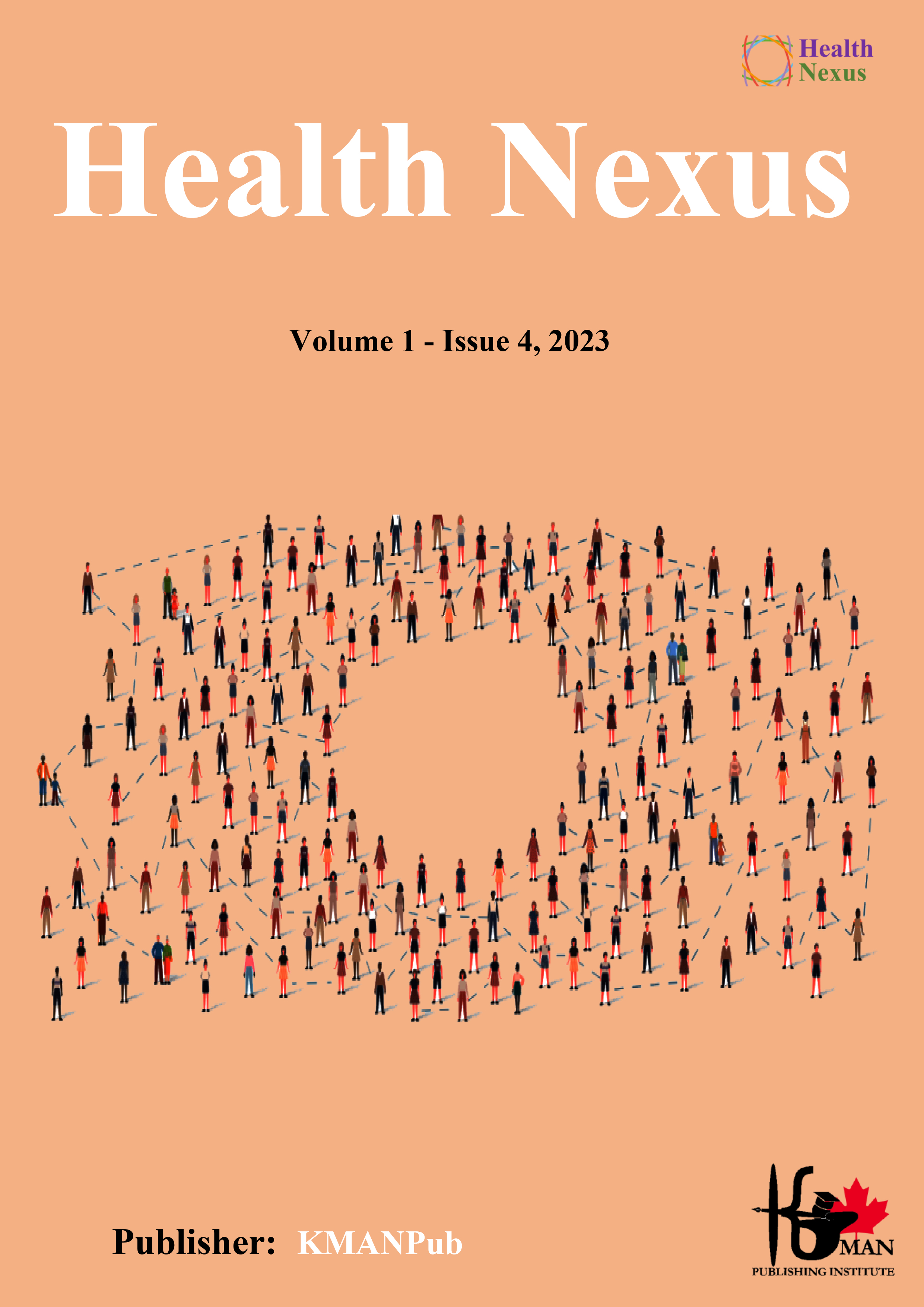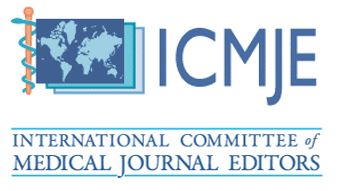Effectiveness of Acceptance and Commitment Therapy on Emotional Self-Regulation and Sense of Coherence in Patients with Irritable Bowel Syndrome
Keywords:
Acceptance and Commitment, Sense of Coherence, Emotional Self-Regulation, Irritable Bowel SyndromeAbstract
Emotions and psychological states significantly affect the severity of symptoms in Irritable Bowel Syndrome (IBS), with patients experiencing considerable distress due to various physical symptoms and negative emotions. The present study aimed to examine the effectiveness of Acceptance and Commitment Therapy (ACT) on emotional self-regulation and sense of coherence in patients with IBS. This study employed a quasi-experimental pre-test, post-test design with a control group and a two-month follow-up period. The population consisted of patients with IBS who visited the Gastrointestinal and Liver Research Center in Tehran in the first quarter of 2023. Thirty patients were selected through purposive sampling and randomly assigned to experimental and control groups. The experimental group received ACT in ten 90-minute sessions, once a week. The instruments used included the Gross and John (2003) Emotional Self-Regulation Questionnaire and the Felsenberg et al. (2006) Sense of Coherence Questionnaire. Data were analyzed using repeated measures analysis of variance with SPSS version 26. The results showed that ACT significantly impacted emotional self-regulation (p=0.002, F=11.57) and sense of coherence (p=0.004, F=9.88) in patients with IBS. It can be concluded that ACT can be an effective intervention for improving emotional self-regulation and sense of coherence in patients with IBS.
Downloads
References
1. Meng H, Nan M, Li Y, Ding Y, Yin Y, Zhang M. Application of CRISPR-Cas9 gene editing technology in basic research, diagnosis and treatment of colon cancer. Frontiers in Endocrinology. 2023;14:1148412. [PMID: 37020597] [PMCID: PMC10067930] [DOI]
2. Han S, Wang D, Huang Y, Zeng Z, Xu P, Xiong H, et al. A reciprocal feedback between colon cancer cells and Schwann cells promotes the proliferation and metastasis of colon cancer. Journal of Experimental & Clinical Cancer Research. 2022;41(1):348. [PMID: 36522730] [PMCID: PMC9753336] [DOI]
3. Zhao T, Li Y, Shen K, Wang Q, Zhang J. Knockdown of OLR1 weakens glycolytic metabolism to repress colon cancer cell proliferation and chemoresistance by downregulating SULT2B1 via c-MYC. Cell Death & Disease. 2021;13(1):4. [PMID: 34921134] [PMCID: PMC8683511] [DOI]
4. Choudhury A. Impact of Social Isolation, Physician-Patient Communication, and Self-perception on the Mental Health of Patients With Cancer and Cancer Survivors: National Survey Analysis. Interact J Med Res. 2023;12:e45382. [PMID: 37027201] [PMCID: PMC10131827] [DOI]
5. Porcelli P, De Carne M, Leandro G. Distinct associations of DSM-5 Somatic Symptom Disorder, the Diagnostic Criteria for Psychosomatic Research-Revised (DCPR-R) and symptom severity in patients with irritable bowel syndrome. General Hospital Psychiatry. 2020;64:56-62. [PMID: 32199282] [DOI]
6. Eisenberg N, Spinrad TL. Emotion-Related Regulation: Sharpening the Definition. Child Development. 2004;75(2):334-9. [PMID: 15056187] [DOI]
7. Dabirinejad S, Minasian E, Kashani AT, Rundmo T, Afshar A. Predicting Pedestrian Behavior by Sleep Quality and Emotional Self-Regulation. Transportation Research Record. 2023;2677(5):1077-84. [DOI]
8. Masoumi S, Amiri M, Afrashteh MY. Self-Compassion: The Factor That Explains a Relationship between Perceived Social Support and Emotional Self-Regulation in Psychological Well-Being of Breast Cancer Survivors. Iranian Journal of Psychiatry. 2022;17(3):341. [PMID: 36474692] [PMCID: PMC9699804] [DOI]
9. D’Cruz AFL, Downing KL, Sciberras E, Hesketh KD. Are physical activity and sleep associated with emotional self-regulation in toddlers? a cross-sectional study. BMC Public Health. 2024;24(1):61. [PMID: 38166760] [PMCID: PMC10763404] [DOI]
10. Berget AM, Moen VP, Hustoft M, Assmus J, Strand LI, Skouen JS, Hetlevik Ø. Effect of sense of coherence on long-term work participation among rehabilitation patients: a longitudinal study. Journal of Rehabilitation Medicine. 2023;55:jrm11982. [PMID: 37855386] [PMCID: PMC10599156] [DOI]
11. van Sint Fiet A, de la Rie S, van der Aa N, Bloemen E, Wind T. The relevance of social capital and sense of coherence for mental health of refugees. SSM - Population Health. 2022;20:101267. [PMID: 36281249] [PMCID: PMC9587331] [DOI]
12. Togari T, Inoue Y, Oshima G, Abe S, Hosokawa R, Takaku Y. Socioeconomic Status and the Sense of Coherence among Japanese People Living with HIV. International Journal of Environmental Research and Public Health. 2022;19(13):7673. [PMID: 35805330] [PMCID: PMC9266145] [DOI]
13. Bargehr B, Fischer von Weikersthal L, Junghans C, Zomorodbakhsch B, Stoll C, Prott FJ, et al. Sense of coherence and its context with demographics, psychological aspects, lifestyle, complementary and alternative medicine and lay aetiology. Journal of Cancer Research and Clinical Oncology. 2023;149(11):8393-402. [PMID: 37079052] [PMCID: PMC10374667] [DOI]
14. Gibson Watt T, Gillanders D, Spiller JA, Finucane AM. Acceptance and Commitment Therapy (ACT) for people with advanced progressive illness, their caregivers and staff involved in their care: A scoping review. Palliative Medicine. 2023;37(8):1100-28. [PMID: 37489074] [PMCID: PMC10503261] [DOI]
15. Zarei F, Asadpour E, Mohsenzadeh f. The efficacy of acceptance and commitment based therapy on marital satisfaction and self-efficiency of mothers with children with cerebral palsy. Journal of Psychological Science. 2021;20(105):1493-512. [DOI]
16. Rauwenhoff JC, Bol Y, van Heugten CM, Batink T, Geusgens CA, van den Hout AJ, et al. Acceptance and commitment therapy for people with acquired brain injury: Rationale and description of the BrainACT treatment. Clinical Rehabilitation. 2023;37(8):1011-25. [PMID: 36750988] [PMCID: PMC10291735] [DOI]
17. Svedberg P, Johansson S, Wallander MA, Hamelin B, Pedersen NL. Extra-intestinal manifestations associated with irritable bowel syndrome: a twin study. Alimentary Pharmacology & Therapeutics. 2002;16(5):975-83. [PMID: 11966507] [DOI]
18. Narimani M, Teklavi S, Abolghasemi A, Mikayeli N. The Effectiveness of Mindfulness-Based Applied Relaxation Training on Temperament and Character Dimensions of Women with Generalized Anxiety Disorder. Journal of Research in Behavioural Sciences. 2016;14(3):393-400.
19. Zettle RD. Acceptance and Commitment Therapy (Act) vs. Systematic Desensitization in Treatment of Mathematics Anxiety. The Psychological Record. 2003;53(2):197-215. [DOI]
20. Hashemi Z, Afshari A, Einy S. The effectiveness of acceptance and commitment education on improving the mental health and quality of life of elderly people with cancer. Iranian Journal of Health Education and Health Promotion. 2020;8(2):160-71. [DOI]
21. Jo M, Son C. Effects of acceptance and commitment therapy (ACT) on IBS-symptoms, stress, quality of life, and acceptance-action of people with irritable bowel syndrome. Journal of Digital Convergence. 2018;16(11):501-9.
22. Lackner JM. Skills over pills? A clinical gastroenterologist’s primer in cognitive behavioral therapy for irritable bowel syndrome. Expert Review of Gastroenterology & Hepatology. 2020;14(7):601-18. [PMID: 32510249] [DOI]
23. Li H, Wong CL, Jin X, Chen J, Chong YY, Bai Y. Effects of Acceptance and Commitment Therapy on health-related outcomes for patients with advanced cancer: A systematic review. International Journal of Nursing Studies. 2021;115:103876. [PMID: 33517079] [DOI]
Downloads
Additional Files
Published
Submitted
Revised
Accepted
License
Copyright (c) 2023 Donya Balali, Leila Salehi (Author); Mojtaba Changi Ashtiani (Corresponding Author); Farya Solat, Shahram Menat Ali, Hossein Alavi (Author)

This work is licensed under a Creative Commons Attribution-NonCommercial 4.0 International License.


























